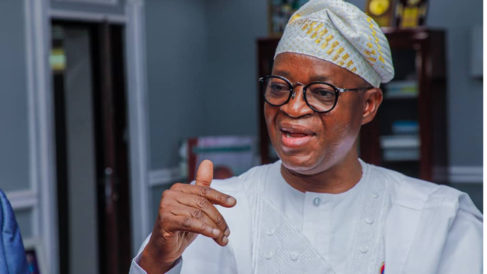In an announcement made during the 29th Nigerian Economic Summit held in Abuja, Gboyega Oyetola, the Minister of Marine and Blue Economy, unveiled an ambitious plan to rejuvenate Nigeria’s deteriorating port infrastructure at a significant cost estimated to be around $1 billion. This declaration came as part of a maritime interactive session focused on the maritime sector’s role in Nigeria’s economic development and its potential as a cornerstone of the nation’s economy.
Minister Oyetola identified a critical issue plaguing Nigeria’s infrastructure landscape, which is the lack of a robust maintenance culture. To tackle this issue head-on, the Federal Government has set its sights on the comprehensive rehabilitation of all ports across the nation. Oyetola emphasized the urgency of this initiative, warning that the ports could face an impending collapse if this extensive rehabilitation effort is not realized.
Oyetola’s vision for the maritime sector involves a cooperative approach, calling on private sector players to join forces with the government to unlock the full potential of the industry. The Minister expressed his intention to manage the sector through a combination of private investments and public-private partnerships, a strategy aimed at revitalizing and revitalizing the sector.
A significant aspect of Oyetola’s plans involves enhancing efficiency in the port sector to ensure real-time cargo clearance. To achieve this goal, the Ministry is actively pursuing the endorsement of President Bola Tinubu for the mandatory implementation of scanning machines at the ports. Oyetola argues that the use of scanners is essential for streamlining port operations, particularly when dealing with the large volume of containers passing through the ports. This appeal to the President seeks to make scanning machines a standard practice within the nation’s ports.
The Minister’s aspirations extend further to the realm of policy development and innovation within the maritime sector. He called on stakeholders to contribute their expertise and ideas, fostering an environment that promotes the sector’s growth, both regionally and internationally. Oyetola assured his commitment to working collaboratively with all stakeholders to overcome the various challenges obstructing the maritime sector’s progress, emphasizing the creation of a comprehensive policy framework.
Moreover, Oyetola disclosed plans to launch a roadmap that incorporates solutions to the sector’s pressing challenges. The roadmap’s vision encompasses improving the navigability of waters, modernizing port infrastructure, streamlining cargo clearance processes, and optimizing connectivity from ports to the hinterland, underpinned by the development of an efficient road network.
In addition to the Minister’s address, Mohammed Bello-Koko, the Managing Director of the Nigerian Ports Authority, highlighted several factors that hinder the optimal performance of the nation’s ports. These factors included the need for increased automation, infrastructure renewal, and strengthened collaboration with the Nigerian Customs Service to eliminate duplicity of functions.
The Thematic Lead for Ports and Inland Waterways at the Nigerian Economic Summit Group, Ronke Kosoko, also addressed the gathering. She stressed that the maritime sector had endured neglect, with issues like poor road infrastructure and port congestion plaguing its development. Kosoko implored both private and public sector participants to share the responsibility for revitalizing the maritime industry, emphasizing its potential to make a substantial contribution to the national economy, potentially even reaching the ambitious goal of a $1 trillion economy projected by the President.
Conclusion: oyetola

Oyetola’s plans for the maritime sector represent a comprehensive effort to rejuvenate the sector, tackle its persistent challenges, and unlock its full economic potential, fostering both national and international growth. These initiatives, coupled with the collaboration of stakeholders and the endorsement of President Tinubu, seek to revitalize the maritime industry and propel it toward becoming a critical economic driver for Nigeria.










